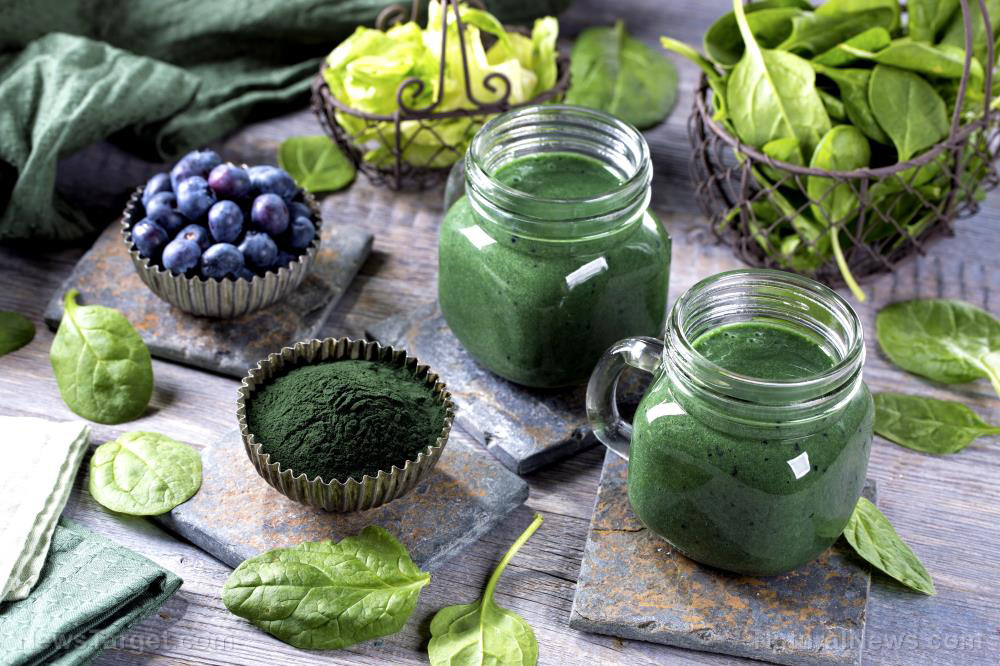by Rose Lidell
Chlorella and spirulina are two superfoods popular among health-conscious consumers because of the many benefits they offer. Both are derived from algae, and they contain many vitamins and minerals that can help boost your overall health.
Chlorella is a single-celled green freshwater alga. There are more than 30 different species of chlorella, but two types, namely Chlorella vulgaris and Chlorella pyrenoidosa, are often used in studies.
Chlorella has a hard cell wall that humans can’t digest, so it is often consumed as a supplement. The superfood is sold as capsules and tablets, but chlorella is also available in powder and extract form.
Spirulina is a type of cyanobacteria with many benefits. Often referred to as a blue-green alga and originally classified as a plant, spirulina has now been reclassified as bacteria. There are also different species of spirulina, but these three are often used in studies: Spirulina platensis (Arthrospira platensis), S. maxima (A. maxima), and S. fusiformis (A. fusiformis).
Health benefits of chlorella and spirulina
If you’re undecided on which one to try, here are some notable differences between these superfoods, along with the health benefits associated with each.
- Chlorella is higher in calories. It also contains more iron, magnesium, omega-3 fatty acids, provitamin A, riboflavin and zinc.
- Spirulina is lower in calories, but it’s still a great source of copper, iron, riboflavin and thiamine.
- Chlorella contains higher levels of omega-3 fatty acids.
Chlorella and spirulina contain similar amounts of fat.
- Both are rich in polyunsaturated fats, particularly omega-3s that are essential for proper cell growth and brain function. Studies have found that polyunsaturated fats are linked to a lower risk of heart disease. Omega-3s help minimize inflammation and promote bone health.
Antioxidant-rich chlorella
Chlorella is full of antioxidants, which are compounds that help fight free radical damage to your cells and tissues. In fact, studies show that chlorella supplement contains significant amounts of antioxidant vitamins C and E.
Protein-rich spirulina
Spirulina is a natural source of protein. It is even used by NASA as a dietary supplement for astronauts on space missions.
Both chlorella and spirulina are full of protein, but research suggests that certain strains of Spirulina can contain at least 10 percent more protein than chlorella.
Additionally, the protein in spirulina is highly bioavailable, meaning it can be easily absorbed by your body.
Aside from protein, spirulina is full of beta carotene, folate and iron.
Chlorella and spirulina can improve heart health, blood sugar control
Research also indicates that both chlorella and spirulina can help boost cardiovascular health by improving your blood fat composition, blood pressure and cholesterol profile.
What’s more, chlorella and spirulina offer benefits for blood sugar control. While experts have yet to determine the exact nature of these benefits, animal studies suggest that spirulina can help boost insulin sensitivity.
Insulin sensitivity measures how well your body uses blood sugar for energy. Findings from human studies reveal that taking chlorella improves blood sugar control and insulin sensitivity, which can benefit patients diagnosed with diabetes or those who have insulin resistance.
Is one healthier than the other?
Both chlorella and spirulina are full of various nutrients. However, chlorella is higher in iron, magnesium, omega-3s, riboflavin, vitamin A and zinc.
While spirulina contains more protein, research indicates that chlorella’s protein content is comparable to the former.
Overall, chlorella is the better choice because it has high levels of antioxidants, polyunsaturated fats and other vitamins.
It’s worth noting that the bulk of studies on spirulina’s health benefits have centered on animal subjects. On the other hand, scientific data on the benefits of chlorella is more extensive, involving both animal and human studies.
Before purchasing supplements, make sure you are buying from a trusted manufacturer to avoid any adverse effects.
Whether you prefer chlorella or spirulina, both these superfoods are an excellent addition to your daily routine to support your overall health.
Sources:
Healthline.com 1
Healthline.com 2
MindBodyGreen.com
NCBI.NLM.NIH.gov



